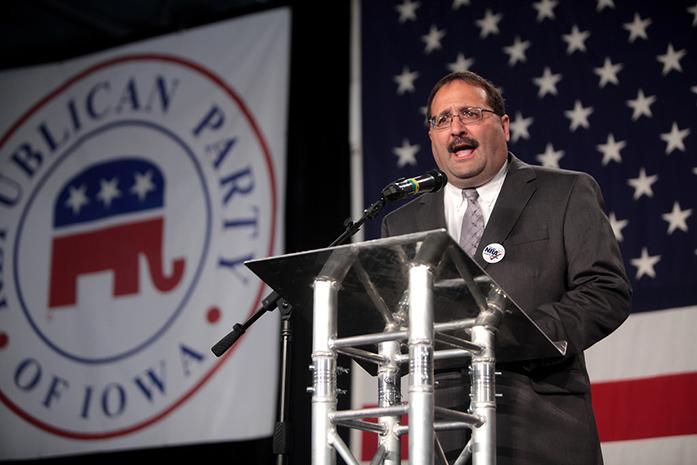By Mitch McAndrew
Delegates and members of the Republican National Committee are converging on Cleveland, where next week they are expected to christen Donald Trump as their party’s presidential nominee.
This week, the focus is not on the party’s candidate but its message.
The 100-member Republican National Convention Committee on Resolutions met at the Huntington Convention Center on Monday to draft the party’s platform, a process that often reveals opposition within the party.
“If some of these more controversial issues emerge, listen to the battle, not necessarily the outcome of the battle,” said Jeff Kaufmann, the chairman of the Republican Party of Iowa. “It’s not necessarily what the final product looks like, but it’s the most intense fight, because that’s where you see some of the fault lines.”
One of those fault lines divided GOP members on the length of the platform document. Ben Barringer, an Iowa delegate from the 1st Congressional District who sat on the Government Reform Committee, said one group favors a national platform that incentivizes accountability for the party’s lawmakers and elected officials. The other favors a more minimal, mission statement-esque document.
Barringer said the latter group has been dubbed the “Brevity Caucus.”
“There is another platform floating around that’s 17 bullets and two pages long, as opposed to the 62-page one,” Barringer said. “We want it to be brought back down to something you can hand out when you go door-to-door.”
The Republican Party of Iowa was updated in May to reflect this idea. It states the party’s five principles and six planks in fewer than 2,000 words that fit neatly onto a tri-fold brochure.
The national Republican Party’s 2012 platform had more than 30,000 words that took up 62 pages.
Kaufmann said the main idea of the new approach to the Iowa GOP’s platform was to move away from specifics toward the central ideas of the Republican Party.
“I like it as the chairman because it makes a great educational tool for me to talk to independents and talk to young people about what it means to be a Republican,” he said. “If you’ve got 500 platform planks, people get lost.”
Barringer also said a more concise platform would increase the party’s ability to expand its voter base.
“The younger generation is doing things in 140 characters,” he said. “The shorter it is, the more likely it is to be read.”
Iowa Republican National Committeewoman Tamara Scott, who sat on the national security and defense subcommittee, argued a shorter platform would take away the voice of the grass-roots.
“The platform is a grassroots-only voice, and to quiet those voices or tone those down is shortsighted,” she said. “The platform is not your marketing tool or your advertising manual.”
She also said that in a presidential election characterized by an angry electorate, the party needs clearly staked claims instead of vague principles.
“Now is not the time for a party to run from its platform,” she said.
Kaufmann predicted a push for less specificity at the national level but said he doesn’t expect much to change.
“The most conservative or liberal folks tend to drive the platform process, so I think a very conservative platform will emerge,” he said.
Follow The Daily Iowan’s Ethics and Politics Initiative (@DIpolitics) as it travels with Iowa’s party leaders to the national conventions.



